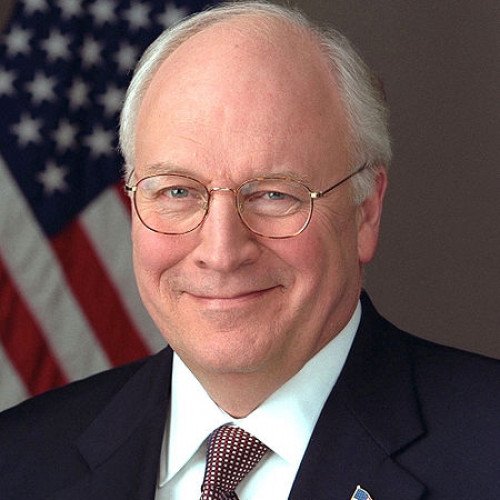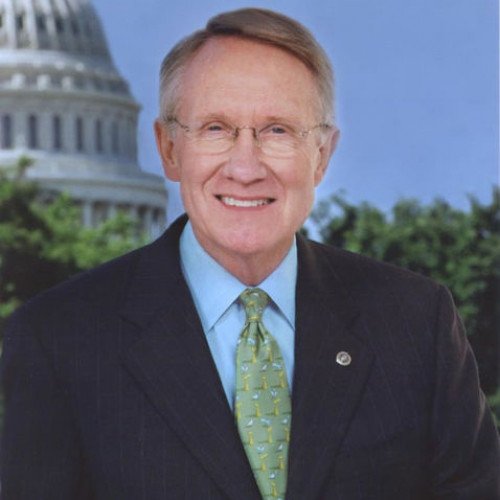Dick Cheney VS Harry Reid

Dick Cheney
Richard Bruce Cheney ( CHAY-nee; born January 30, 1941) is an American politician and businessman who served as the 46th vice president of the United States from 2001 to 2009 under George W. Bush. He has been cited as the most powerful vice president in American history. He is also one of the most unpopular politicians in the history of the U.S., holding an approval rating of just 13% at the time of leaving office.Born in Lincoln, Nebraska, Cheney grew up there and later in Casper, Wyoming. He attended Yale and then the University of Wyoming, at the latter of which he earned a BA and an MA in Political Science. He began his political career as an intern for Congressman William A. Steiger, eventually working his way into the White House during the Nixon and Ford administrations. He served as White House chief of staff from 1975 to 1977. In 1978, Cheney was elected to the U.S. House of Representatives. He represented Wyoming's at-large congressional district from 1979 to 1989, briefly serving as House minority whip in 1989. Cheney was selected to be the secretary of defense during the presidency of George H. W. Bush, holding the position for the majority of Bush's term from 1989 to 1993. During his time in the Department of Defense, Cheney oversaw the 1991 Operation Desert Storm, among other actions. Out of office during the Clinton administration, Cheney was the Chairman and CEO of Halliburton Company from 1995 to 2000. In July 2000, Cheney was chosen by presumptive Republican presidential nominee George W. Bush as his running mate in the 2000 presidential election. They defeated their Democratic opponents, incumbent Vice President Al Gore and Senator Joe Lieberman. In 2004 Cheney was reelected to his second term as vice president with Bush as president, defeating their Democratic opponents Senators John Kerry and John Edwards. During Cheney's tenure as vice president, he played a leading behind-the-scenes role in the George W. Bush administration's response to the September 11 attacks and coordination of the Global War on Terrorism. He was an early proponent of invading Iraq, alleging that the Saddam Hussein regime possessed a weapons of mass destruction program (no active WMDs were in Iraq) and the Hussein regime had an operational relationship with Al-Qaeda (even though there was scant credible evidence of such a relationship at the time). He also pressured the intelligence community to provide intelligence consistent with the administration's rationales for invading Iraq. Cheney was often criticized for the Bush Administration's policies regarding the campaign against terrorism, and for his support of wiretapping by the National Security Agency (NSA) and of torture. He became at odds with President Bush's position against same-sex marriage in 2004.
Statistics for this Xoptio

Harry Reid
Harry Mason Reid (; born December 2, 1939) is a retired American attorney and politician who served as a United States Senator from Nevada from 1987 to 2017. He led the Senate's Democratic Conference from 2005 to 2017 and was the Senate Majority Leader from 2007 to 2015. Reid began his public career as the city attorney for Henderson, Nevada before winning election to the Nevada Assembly in 1968. Reid's former boxing coach, Mike O'Callaghan, chose Reid as his running mate in the 1970 Nevada gubernatorial election, and Reid served as Lieutenant Governor of Nevada from 1971 to 1975. After being defeated in races for the United States Senate and for the office of mayor of Las Vegas, Reid served as chairman of the Nevada Gaming Commission from 1977 to 1981. From 1983 to 1987, Reid represented Nevada's 1st district in the United States House of Representatives. Reid won election to the United States Senate in 1986 and served in the Senate from 1987 to 2017. He served as the Senate Democratic Whip from 1999 to 2005 before succeeding Tom Daschle as Senate Minority Leader. The Democrats won control of the Senate after the 2006 United States Senate elections, and Reid became the Senate Majority Leader in 2007. He held that position for the final two years of George W. Bush's presidency and for the first six years of Barack Obama's presidency. As Majority Leader, Reid helped pass major legislation, such as the Patient Protection and Affordable Care Act, the Dodd–Frank Act, and the American Recovery and Reinvestment Act of 2009. Republicans took control of the Senate following the 2014 United States Senate elections, and Reid served as Senate Minority Leader from 2015 until his retirement in 2017. Reid was succeeded as the Senate Democratic leader by Chuck Schumer, whose leadership bid had been endorsed by Reid. Along with Alben W. Barkley and Mike Mansfield, Reid is one of only three senators to have served at least eight years as majority leader.